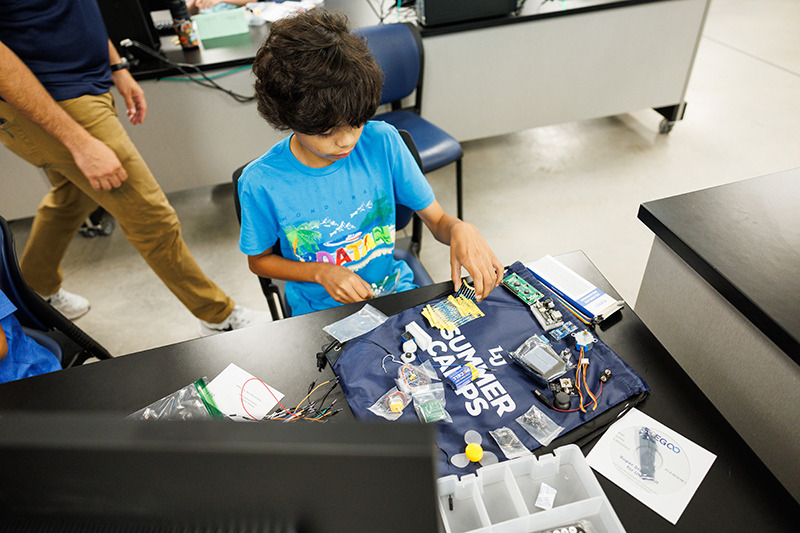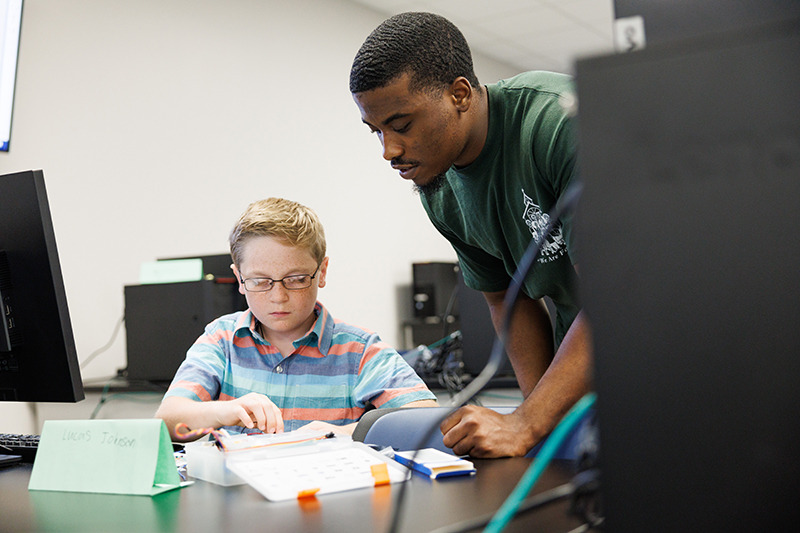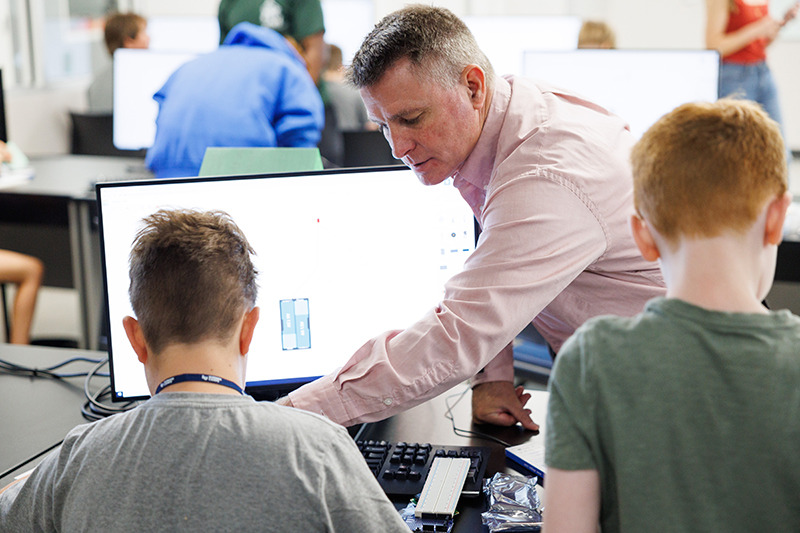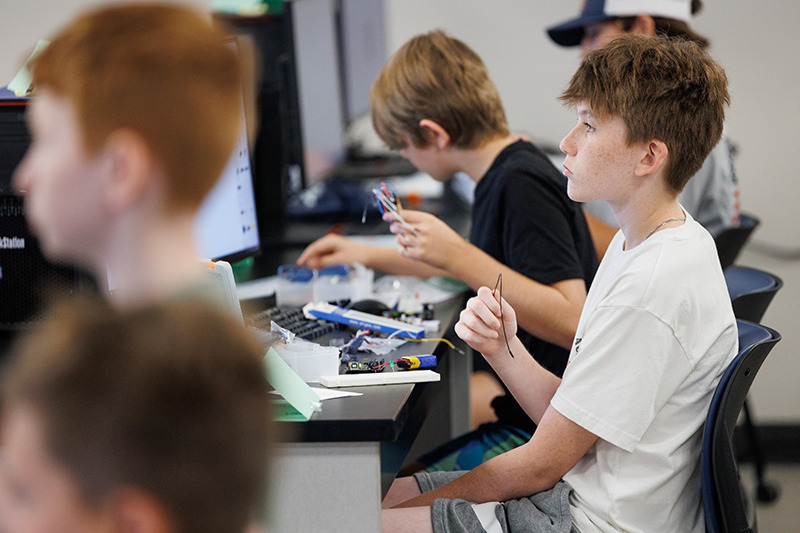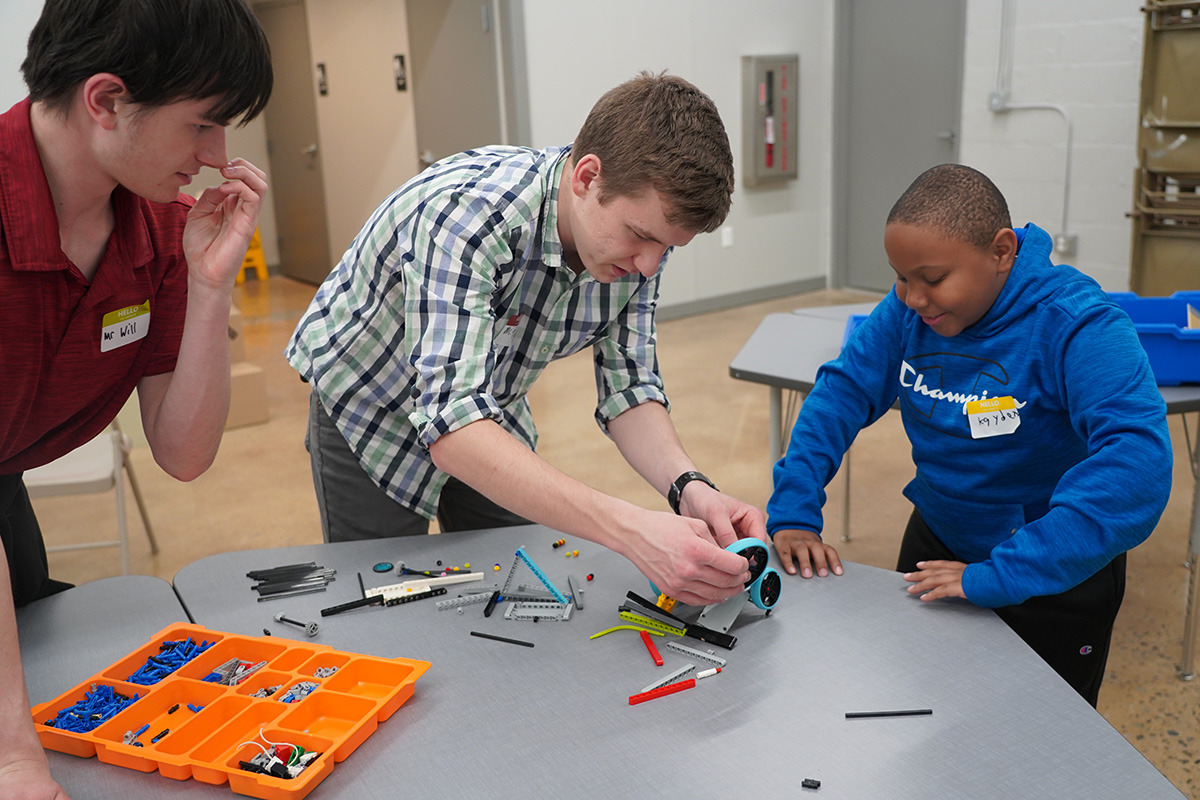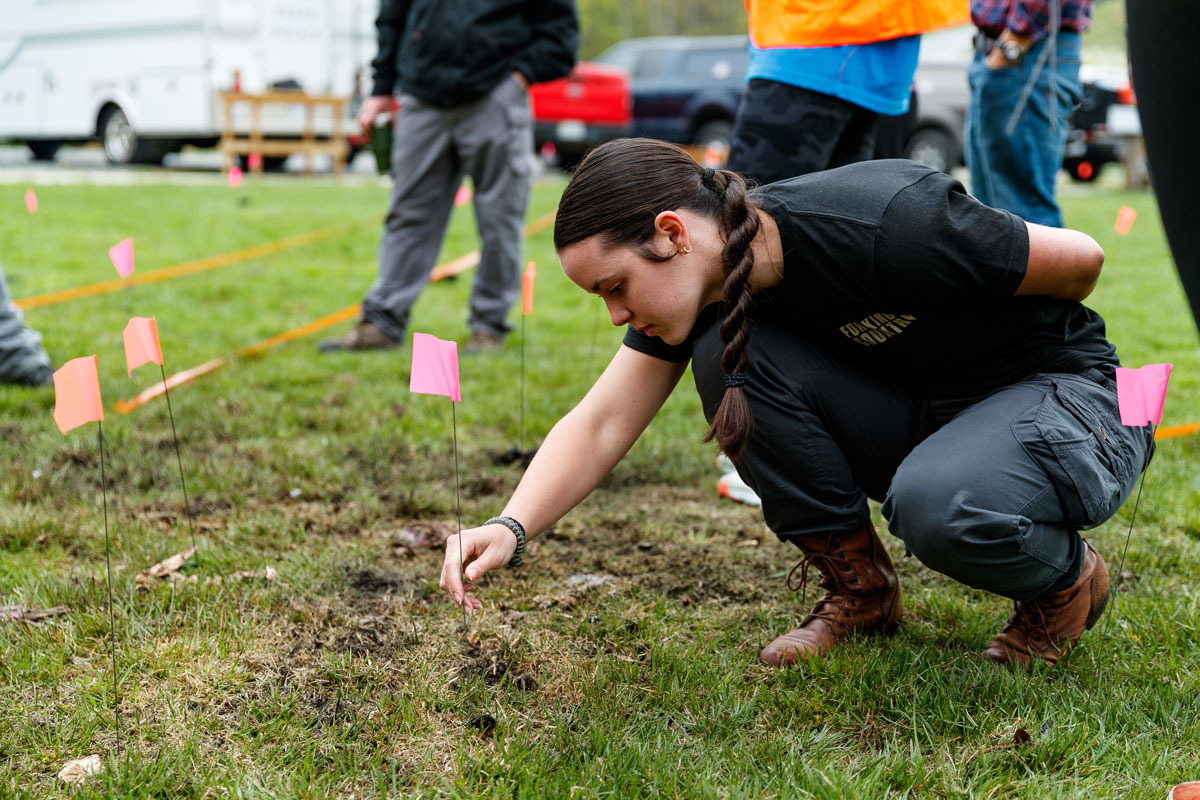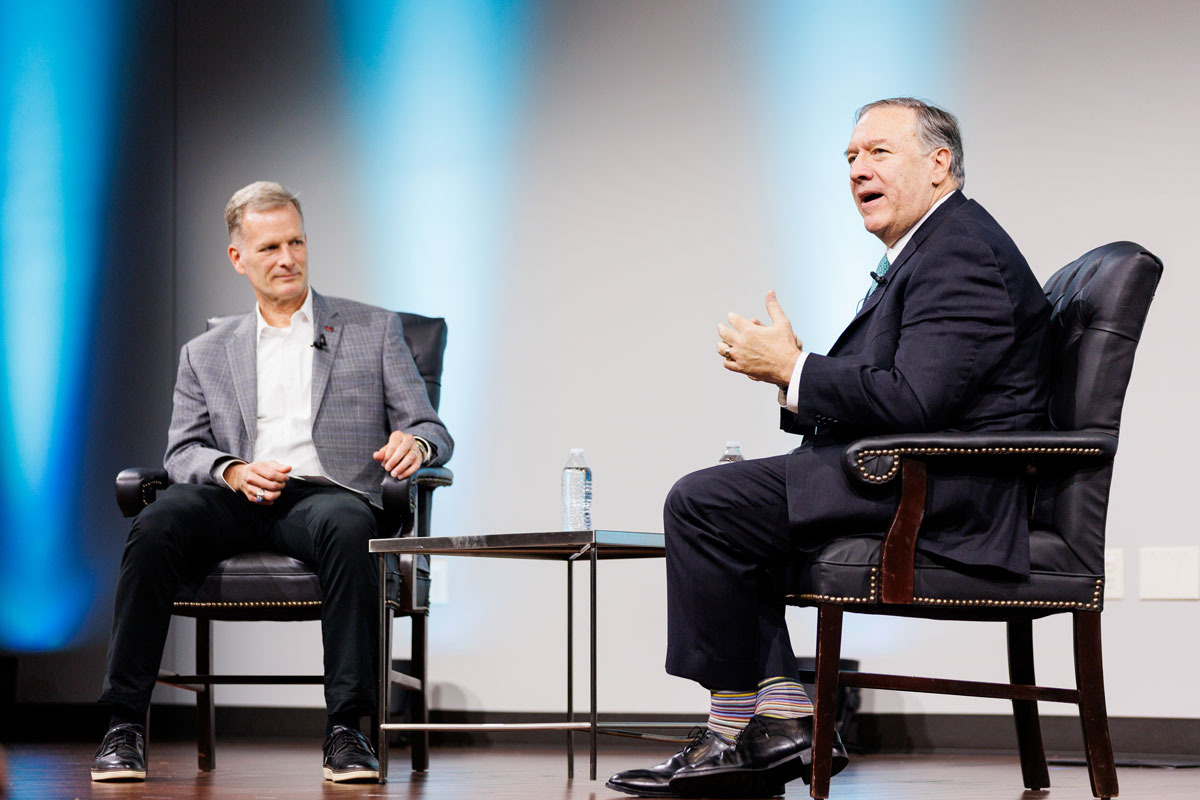Search News Archives
Filter News Articles
Additional Navigation
Engineering camp introduces youth to basic electronics, strengthens STEM skills
July 21, 2023 : By Ted Allen - Office of Communications & Public Engagement
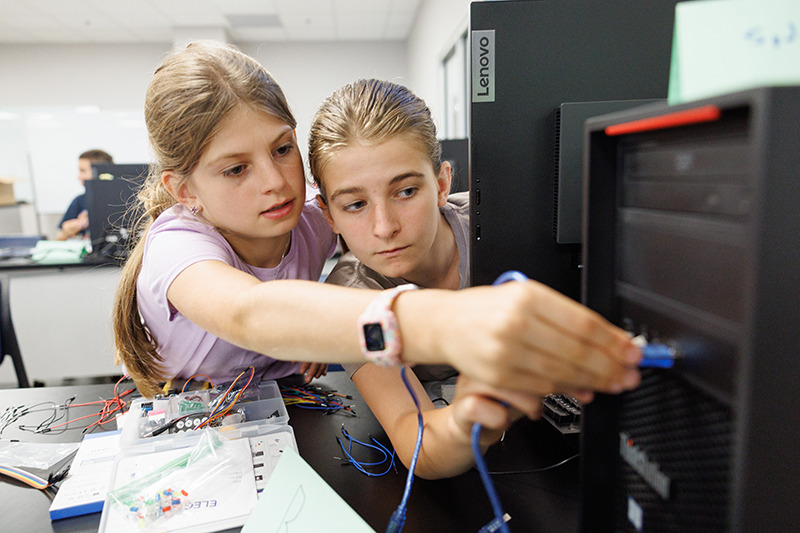
Around 40 middle school and 20 high school students attended the Liberty University School of Engineering’s first summer camp this month, which covered basics of computer programming, electronics, engineering, and product design.
“We’re teaching them three main things — how to code, how to build circuits, and how to draw schematics,” said mechanical engineering professor Dr. Tate Fonville, who helped coordinate the camps. “This is computer programming and circuitry building … just as advanced as what we teach our students in the first year intro class, so we’re showing them how to do some really good stuff, and they’re implementing it.”
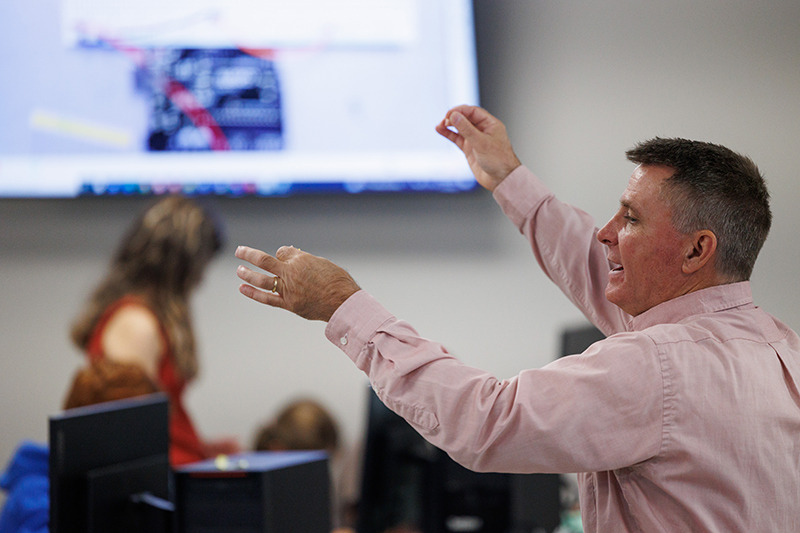
The primary instructor was Robert Walsh, president of Excalibur Solutions STEM Academy in Lawrenceville, Ga., which coaches, trains, and mentors students of all ages in science, technology, engineering, and math skills. Walsh is also a Liberty parent; his son is a recent graduate of Liberty University School of Law and his daughter is enrolling in Liberty Law this fall.
“Part of what I do is encourage kids to think about (engineering) as a career path, to get them excited about this, and to recognize that you don’t need any special skill or ability,” Walsh said. “You don’t have to be a math genius or a science genius. Anybody can build these circuits, and anyone can write these programs.”
Fonville said there was a tremendous range of skillsets among the campers.
“Some people know how to do coding or programming, but most people have never done any of this before,” he said. “The students have been able to build circuits and learn other code. We’ve walked them through step by step how to do what they need to do, and we’re teaching them about the circuits they’re using or the sensors and how they work.”
Walsh said many of the students developed proficiency in code writing in a short amount of time and can improve those skills through repetition.
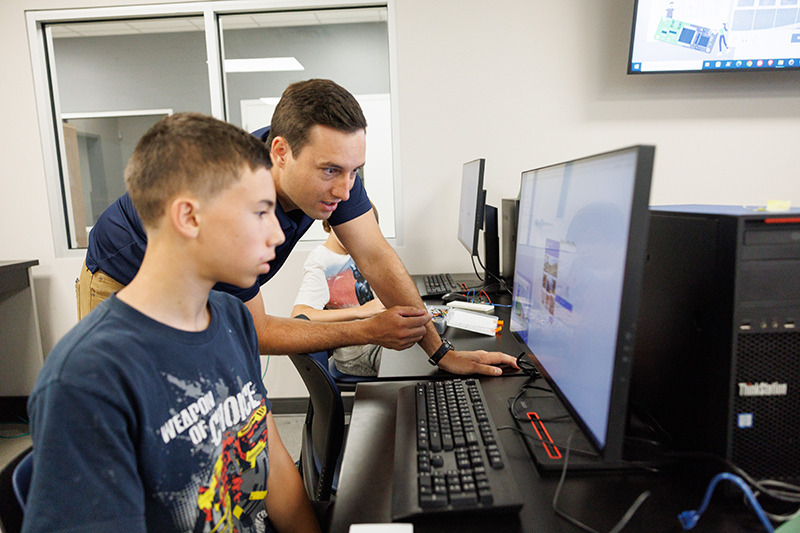
“Computer coding actually helps with other forms of written and verbal communication,” he said. “You’re learning to sequence your thoughts into a linear set of instructions that perform tasks no different than outlining a paper. Learning to use language and grammar and syntax and punctuation correctly will help make you a better writer, because it’s that same attention to detail.”
Current Liberty students from the mechanical, electrical, and industrial & systems engineering programs who are working as lab managers on campus this summer assisted with the camp.
The camp was split into two, three-hour sessions each day — middle schoolers in the mornings and high schoolers in the afternoons. Students could register for one or two weeks. The camp officially ended on Thursday.
“With the middle school kids, there’s a lot of enthusiasm and energy … they really get into what they’re doing,” Walsh said. “The high school kids are a little more analytical, they have had more schooling, so they understand concepts a little bit better in making the connections and correlations. They’re getting to see how things that they may be familiar with in the world around them actually work.”
Using Arduino starter kits, students worked on projects such as building arcade-style games with LEDs and push buttons that involved digital logic and critical thinking skills in order to solve problems collaboratively within their groups.
“The high schoolers are using a little more advanced logic and integrating more advanced components,” Fonville said. “They’re using a servo motor (an electromechanical device that produces torque and velocity based on the supplied current and voltage) to point an ultrasonic sensor to read distance measurements, and they use a joystick to control all of that.”Walsh tries to inject history and social science into his instruction to give students applications to what they are learning. For example, he explained the development of sonar for detecting submarines during World War I, radar for tracking aircraft in World War II, and lidar, which uses light and laser imaging to assist in archeological discoveries.
Fonville said the camps were a chance to showcase some of Liberty’s state-of-the-art engineering facilities and can potentially attract future students into the engineering program. The campers were able to use a new computer lab outfitted with state-of-the-art simulation software.
“This opportunity really met a need and a desire in our community to get more STEM engagement,” he said. “I count this as a major success, and we plan to bring Rob back to host more camps next summer.”
